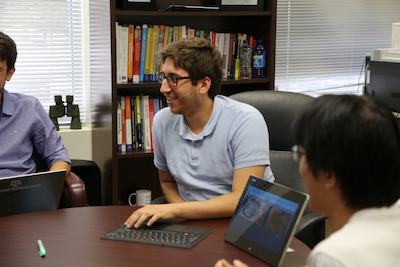Twenty-four Texas A&M University students are spending their summer working toward launching innovations and businesses through the Summer Lean Startup program with Texas A&M Engineering and Startup Aggieland. The program participants include students working on their own ideas developed as part of programs such as Aggies Invent and U-Ignite and also students working on faculty-led innovations from the AggiE_Challenge program.
“The program provides tremendous value to our engineering students by engaging them in the process of understanding that a technical product is successful when it creates value by addressing a need in the market,” said Magda Lagoudas, executive director for industry and nonprofit partnerships.

The 2016 Summer Lean Startup program supports the college of engineering’s efforts to promote entrepreneurial mindsets among engineering students. Program participants were selected based on the maturity of products and their commitment to complete the program requirements. The Summer Lean Startup program is a 10-week program structured around evidence-based entrepreneurship methodologies and modeled after the successful National Science Foundation I-Corps program.
Twelve teams of two students per team were selected. These student innovators had a product that has moved out of the ideation phase and is ready to undergo intensive customer discovery and groundwork for commercialization. The program is designed to guide students through market segment identification, customer discovery, risk assessment, financial analysis and much more throughout the summer.
At the close of the Summer Lean Startup program, each team will pitch its findings to a panel of industry experts and entrepreneurs. The presentations will take place on Aug. 11 from 1-6:30 p.m., at Rudder Forum. Students and faculty are invited to attend.
The 2016 Summer Lean Startup projects are BioIndent, BitGrange, DeHydraTect, GiftHer, Lift Assist, Life Alert Infant Movement Detector, Miniature Autonomous Pipeline Robots, Quadcomm, STEM Space, THE Powered Heart Rate Sensor, Vibration-Added Haptics and Well Mitigation Methods for Accidental Spillage.